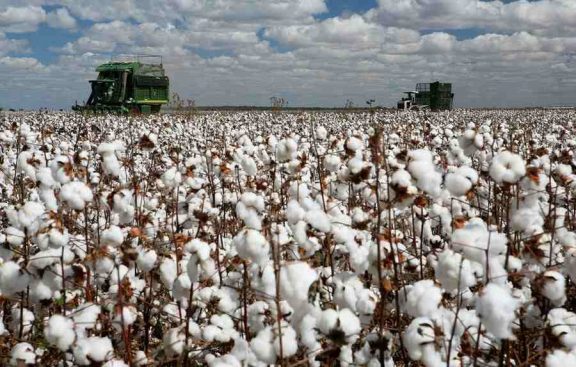By Afolabi Gambari
Population had been Nigeria’s advantage since pre-colonial times. It was even more so in before independence. This made it doubly sure that the country’s textile industry would be a booming sector after independence in 1960, by which time the population of Nigeria had reached about 45 million, according to official estimates. For this rather huge population to meet its textile needs, therefore, there was an urgent need to look inward, especially to save revenue while providing job opportunities for the teeming populace. At the time, importation of fabrics from far flung countries in Europe and Asia was a norm, even though it could still not meet the local needs adequately, despite scarce foreign exchange being lost in the process.
The somewhat dire situation forced the Nigeria’s founding fathers to sit and brainstorm with a view to giving life to the textile sector of the country’s economy – the more for the people to patronize locally produced fabrics while encouraging wealth creation among the locals. The rubbing of minds by the leaders led to the establishment of local textile companies which represented the spread of the population and its people; United Nigeria Textile Limited in Kaduna serving the north and its people, Nigeria Textile Company in Lagos serving the west up to parts of today’s Kwara and Kogi states and Asaba Textile Company serving the then mid-west up to the east. As a virtual employers of labour, all the textile companies mass-employed all categories of people and soon became the second largest employer of labour after the civil service. The quality products from the factories increasingly turned Nigerians into consumers of the local fabrics. As a ceremonious people by nature, different types of textiles were produced to suit all occasions. The founding fathers had great vision: knowing that cotton, which is a basic raw material textiles, must be produced locally, large expanse of lands were acquired across the northern part of the country, some of the lands on lease, to plant cotton in commercial quantity. The product soon began to serve local needs adequately while also being exported particularly to neighbouring countries.

The textile industry is linked to so many things to flourish. Lands must be provided to plant cotton, with adequate water to aid the cotton’s growth, especially as the north’s land area where cotton was being grown required adequate water. This meant that effective and efficient irrigation can substitute inadequate amount of rainfall. Finance was also required to procure the cotton seeds; hence a solid relationship with banks and other financial houses were required. Government must also encourage the banks to grant loans to the cotton farmers while providing infrastructure like roads on which the farm produce would be taken to the textile factories where cotton would be processed into yarn, thread, etc.
With the foregoing, government played a significant role post-independence and the results showed as the Nigerian textile products attracted interest from countries in Africa and around the world, in addition to the foreign exchange earnings that the country earned. However, a combination of factors that include financial mismanagement, policy somersaults and a new economic world order waged a huge war against the textile sector. The beginning of 1984 saw a downturn in the fortune of Nigeria’s textile industry due to austere policy of the government, although the policy also sought to support and encourage local production and consumption, so it seemed.
By 1986 when the military government of General Ibrahim Babangida introduced the Second-tier Foreign Exchange Market which metamorphosed into the Structural Adjustment Programme, popularly known as SAP, however, the economy soon began to nosedive and the capital flight that accompanied the economic programme ruined the textile sector. To this day, things have not been the same. Nonetheless, the prospects are intact. Government would do well to restructure the moribund power sector, especially as no textile company can break even operating on generators. Alternatively, government could enter a pact with textile companies to tap into the country’s abundant gas supply to generate their power.
Also, government can enforce its look-in policy that would wage heavy barricade against importation of textile materials which has emasculated the sector in recent years. The whole idea of free world trade, meaning world trade without barrier is now academic. Watch what President Donald Trump of the United States of America is doing to protect his country’s industries from the invaders from other parts of the world. And follow the retaliatory measures of the countries at trade war with America. The whole situation may be unpleasant. However, this is what the reality of the world economy today. So, Nigeria should not shy away from taking necessary measures to resuscitate the country’s textile industry with necessary steps to protect it to a reasonable extent. Government can also enforce quality control on local production with a view to making the products attractive to Nigerians and enable it to compete in the world market.
When the economy was buoyant and Nigeria was less than 100 million people, textile industry provided jobs for a good number of the people here at home. This is bound to be the case again if the industry bounces back. The gains would be huge. With the heterogeneous nature of the textile industry, markets for raw materials and finished products will increase. This will create another avenue for prosperity. So, Nigerians are anxiously waiting for the present government to implement its textile industry revitalization programme that will involve up to 10,000 cotton growers as the ground is being prepared for the new line of textile manufacturing factories and mills that will make use of the raw materials.
*Afolabi Gambari Journalist, Environmentalist, Social Commentator writes from Lagos, Nigeria Tel: +2348064651922, +2348116706849
